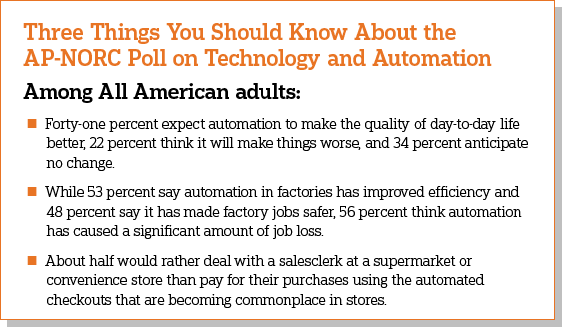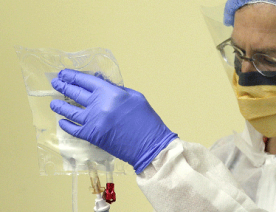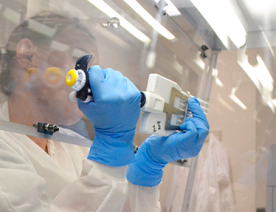
Smartphones, GPS, and social media are part of everyday life for most Americans, and many expect developing automation will be a benevolent force, improving their quality of life, offering convenience and efficiency. At the same time, there is considerable concern about new technology’s effect on workers and people’s interpersonal relationships.
The poll conducted by The Associated Press-NORC Center for Public Affairs Research finds that the ubiquity of automated teller machines (ATMs) seems to have given the public a comfort level with ATMs and online banking. However, while e-commerce is on the rise, most people still tend to shop in person and prefer to deal with sales clerks rather than self-service machines.
Many people see automation as a boon for factory safety and efficiency, though they foresee an adverse effect on job security and wages. And while most people continue to shop in brick-and-mortar stores, there is an expectation that future technological developments will be at the expense of retail jobs.
The survey finds that younger, better-educated, and more affluent Americans are more likely to adapt to new technology. But across ages, incomes, and education levels, Americans worry that new technology will lead to people becoming increasingly isolated from one another.
The nationwide poll was conducted August 17-21, 2017, using the AmeriSpeak® Panel, the probability-based panel of NORC at the University of Chicago. Online and telephone interviews using landlines and cell phones were conducted with 1,038 adults.




